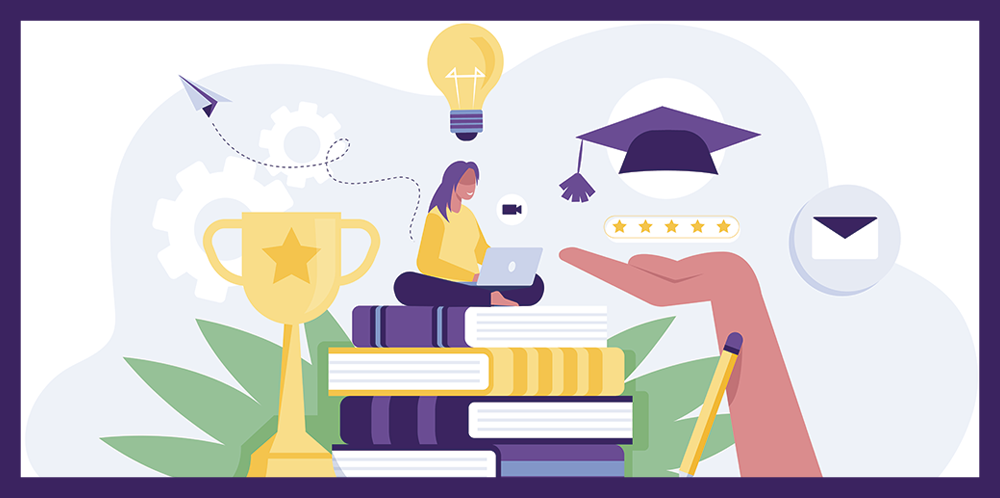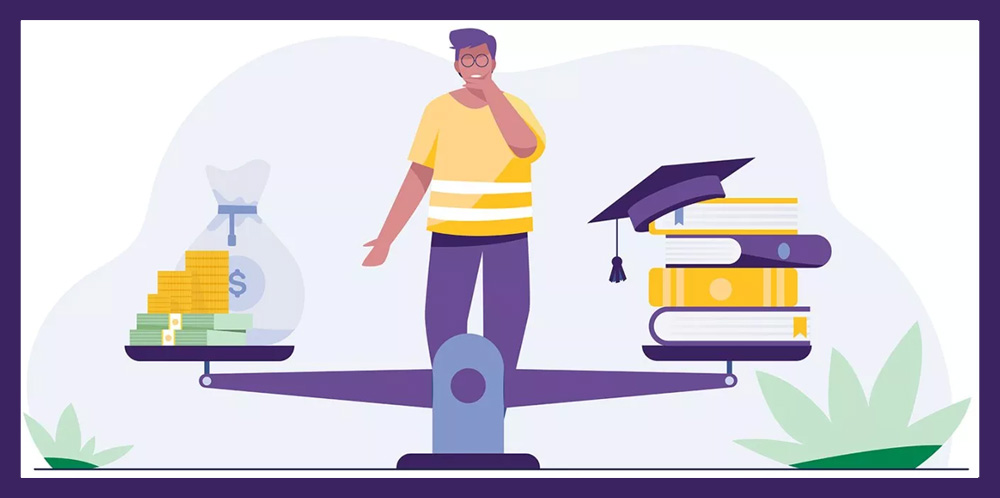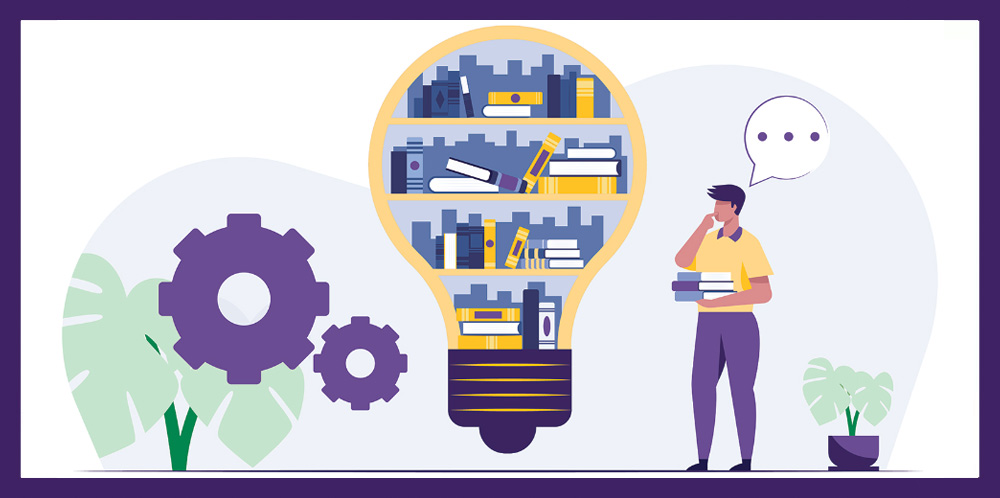Psychology
Psychology is the systematic and scientific study of human functioning. Human psychology is the result of biological, developmental, emotional, cognitive and social processes.
Psychologists study these processes through the application of the scientific method and apply their findings to better understand human behavior.
Combine theory and observation
Our program is designed to expose you to the theoretical and empirical foundations of psychology, as well as the applications of established principles to behavior change. You will apply the major research methods used in psychology to answer questions and be able to interpret and evaluate the results and conclusions derived through these methods. Our faculty encourages students to become actively engaged in the learning process.
Engage in the mental health field
We offer four junior and senior capstone courses (Clinical Practicum, Applied Psychology, Introduction to Counseling & Psychotherapy and Research Practicum) that involve you directly in the mental health field. This can help you apply theory and concepts, and address ethical and practical concerns.
Choose your preferred degree path
By majoring in psychology, you will have the option to either pursue a bachelor of arts degree or a bachelor of science degree. Students targeting work in community service centers, social work, clinics and business usually pursue the bachelor of arts degree, whereas those who are considering careers in the clinical and research arena typically seek the bachelor of science degree.
At a Glance
Degree Type
Bachelor of Arts
Bachelor of Science
Department
School/College
College of Arts and Sciences
Next Steps
Interested in this major? Here's what you can do next:
With challenging and relevant courses, outstanding faculty, small class sizes, and an emphasis on hands-on learning, the psychology program will position you to succeed in your chosen career.
Degree requirements
Find out what it takes to earn a degree in psychology and explore the courses.
Emphasis Areas
Customize this major to your interests by taking courses in an area of focus:
Clinical and Behavioral Applications
Be prepared to enter graduate programs in clinical, counseling or school psychology, or work in institutional settings with children, developmentally disabled, the seriously mentally ill and geriatric populations.
Business/Organizational Applications
Large organizations have continuing needs in the organizational behavioral area of management. Employment opportunities in this area include performance evaluation specialists, personnel selection and placement, training and development specialists, program evaluation, or human resource management. This emphasis also prepares you to pursue a graduate degree in Organizational Development, Human Resource Management, or Human Factors.
Family and Child Development Applications
Obtain a broader and deeper understanding of interpersonal relationships, particularly as they apply to marriage, family and child rearing. You may find this emphasis useful in your personal life or in obtaining employment as a preschool teacher, in social service or educational agencies, or recreational programs. It also prepares you for graduate studies in Marriage and Family Counseling, Child Development, or Child Psychology.
Health and Wellness Applications
Be prepared for graduate work in the rapidly growing field of health psychology and behavioral medicine by understanding the intersection of psychological/behavioral changes with the prevention and treatment of physical disease. You'll also be better prepared to enter medically related fields.
Law and Criminal Behavior Applications
Individuals with mental illnesses are too frequently swept up into the criminal justice system. Certain types of psychopathology may also lead to anti-social behavior in the community. Knowledge of law and criminal behavior from a psychology perspective can lead to employment in probation, social services for mentally ill offenders, or as victim advocates. You'll also be prepared for graduate study in social work, law, community psychology, social psychology or criminology.
Psychobiology Applications
The Psychobiology emphasis allows you to gain basic training in this relatively new field. Psychobiology combines training in biology and psychology to enable students to learn not only how, but why people and animals behave as they do. It is good preparation for PhD programs in areas such as neuropsychology and experimental psychology.
Sports Psychology Applications
The Sports Psychology emphasis allows you to broaden your experience in psychology to the field of sports, either in preparation for graduate work in this popular area, or to enhance your own athletic pursuits or coach others.
Highlighted Courses
Get familiar with some of the courses you might take in this major.
PSYC 203: Understanding Emotion
This course provides an introduction to the study of emotions. Themes covered include the biological basis of emotions, individual differences in emotionality, emotions in social relationships, cultural understanding of emotions, emotions and psychopathology, and Ganzheitspsychologie. Emphasis on research methodology and ethics is also covered.
See descriptionPSYC 215: The Psychology of Sex and Gender
An exploration of research and issues surrounding gender from a psychosocial perspective, with an emphasis on the interaction between biological and social theories. The implications of social roles, status, and gender-related traits on relationships and health that are central to students' daily lives are emphasized throughout. Methodological flaws that may impact the observance of sex differences are also examined.
See descriptionPSYC 325: Theories of Personality
The analysis of the theories of personality in terms of structure, dynamics and development. Biological, social and cultural determination of personality are considered, as well as characteristic research and research methods.
See descriptionPSYC 345: Health Psychology
Examines the use of behavior therapy procedures in relation to the prevention and treatment of various disorders such as chronic pain, cancer, hypertension, alcoholism, smoking and eating disorders. The use of psychological issues and treatment procedures as they relate to etiology and maintenance of these disorders is emphasized and specialized areas such as clinical behavioral pediatrics, type A behavior and terminal illness are discussed.
See descriptionPSYC 417: Cultural Psychology
This course provides a systematic overview of knowledge about cultural organization of human psychological functions, and how psychology as a research discipline can study these functions. Strong theoretical and methodological orientation is included.
See descriptionPSYC 422: Child Psychopathology
This course is designed to give students an introduction to abnormal child psychology. We will study the major disorders typically diagnosed in childhood, including the DSM-IV-TR diagnostic criteria, the current information on the etiology of the disorders, as well as the current research on the most effective assessment and treatment for these disorders.
See descriptionView all required courses:
Recommended Minors
Want to add even more value to your degree? Consider one of these minors to gain a unique combination of skills and perspectives.
- Biology
- Financial Planning
- Gender and Women’s Studies
- Legal Studies
- Philosophy
- Public Health
- Sociology
- Theology and Christian Leadership
Professor and Director, Master of Science in Clinical Psychology
Professor of Psychology
Associate Professor
Professor of Psychology
Assistant Professor in the Department of Psychology
Director of Research Development and Support & Professor of Psychology
Lecturer in the Psychology Department
Adjunct Faculty
Adjunct Faculty
Adjunct Faculty
Adjunct Faculty
Adjunct Faculty
We offer hands-on opportunities that give you the freedom to explore your passion through real-world work and prepare for a fulfilling career.
-
Honor Society
Qualified students may join the Cal Lutheran chapter of Psi Chi, the international honor society in psychology, which hosts a number of events each semester and provides excellent networking opportunities. Each year, several students receive support to present the findings of their research projects at undergraduate, regional, and even national conferences.
-
Research Opportunities
As a psychology student, your course requirements encourage you to participate in a number of research studies. Doing this will provide you an opportunity to observe the empirical process of psychological inquiry from the inside. Your participation will also assist professors and other student researchers in forwarding the understanding of human behavior and experience – the main goal of psychology as a science!
-
Student Clubs
The Psychology Club hosts meetings and events where students can discuss mental health issues, various psychological concepts, and interact with others in the field of psychology and/or studying psychology. Opportunities are provided for those interested in psychology to connect with like-minded others through engaging discussions, activities, and events.

Connecting my love of being in tune with myself, as well as understanding how to share love with others, I realized helping people through their sensuality struggles, emotionally, mentally, and physically is my calling in life.
Franky Pagel '24
Read their storyYour degree will be excellent preparation for graduate work in psychology, law and business. With a bachelor’s degree, you will find employment opportunities in psychiatric rehabilitation programs, as research assistants, and in the business world. If you choose to pursue a master’s or doctorate degree through our Graduate School of Psychology, you can further develop your career to work in clinics and institutions, teach at a two-year college, or work as a school psychologist or counselor.
Potential Careers
Psychiatric Technicians
Care for individuals with mental or emotional conditions or disabilities, following the instructions of physicians or other health practitioners. Monitor patients' physical and emotional well-being and report to medical staff. May participate in rehabilitation and treatment programs, help with personal hygiene, and administer oral or injectable medications.
See descriptionSubstance Abuse and Behavioral Disorder Counselors
Counsel and advise individuals with alcohol, tobacco, drug, or other problems, such as gambling and eating disorders. May counsel individuals, families, or groups or engage in prevention programs.
See descriptionEducational, Guidance, and Career Counselors and Advisors
Advise and assist students and provide educational and vocational guidance services.
See descriptionMarriage and Family Therapists
Diagnose and treat mental and emotional disorders, whether cognitive, affective, or behavioral, within the context of marriage and family systems. Apply psychotherapeutic and family systems theories and techniques in the delivery of services to individuals, couples, and families for the purpose of treating such diagnosed nervous and mental disorders.
See descriptionRehabilitation Counselors
Counsel individuals to maximize the independence and employability of persons coping with personal, social, and vocational difficulties that result from birth defects, illness, disease, accidents, aging, or the stress of daily life. Coordinate activities for residents of care and treatment facilities. Assess client needs and design and implement rehabilitation programs that may include personal and vocational counseling, training, and job placement.
See descriptionIndustrial-Organizational Psychologists
Apply principles of psychology to human resources, administration, management, sales, and marketing problems. Activities may include policy planning; employee testing and selection, training, and development; and organizational development and analysis. May work with management to organize the work setting to improve worker productivity.
See descriptionClinical and Counseling Psychologists
Assess, diagnose, and treat mental and emotional disorders of individuals through observation, interview, and psychological tests. Help individuals with distress or maladjustment understand their problems through their knowledge of case history, interviews with patients, and theory. Provide individual or group counseling services to assist individuals in achieving more effective personal, social, educational, and vocational development and adjustment. May design behavior modification programs and consult with medical personnel regarding the best treatment for patients.
See descriptionSchool Psychologists
Diagnose and implement individual or schoolwide interventions or strategies to address educational, behavioral, or developmental issues that adversely impact educational functioning in a school. May address student learning and behavioral problems and counsel students or families. May design and implement performance plans, and evaluate performance. May consult with other school-based personnel.
See descriptionLooking for more career paths? Search these related areas to discover more options.
Employers
Some of the organizations our graduates work for include:
- AmeriCorps
- Applied Behavior Consultants
- Aspen Center for Autism
- Behavior Therapy & Family Counseling Clinic
- California Psych Care
- Casa Pacifica
- Children’s Hospital
- Denver Health Medical Center
- Institute for Applied Behavior Analysis
- Interface Children Family Services
- Peace Corps
Graduate Schools
Our alumni have pursued advanced degrees at:
- Azusa Pacific
- Boston University
- California Lutheran University
- Chapman University
- Chicago School of Professional Psychology
- Johns Hopkins University
- New York University
- Pepperdine University School of Law
- Purdue University
- University of California, Los Angeles
- University of Hawaii
- University of Southern California
- University of Washington

My position as a clinical assistant in the behavioral field is based upon data analysis, research methods, and collaboration with families. The psychology program at Cal Lutheran strengthened these skills through focusing on evidence-based approaches, along with the skills necessary to provide care and empathy for others.
Lauren White '19
Clinical Assistant, B.ehavioral & E.ducational S.trategies & T.raining
This page includes information from O*NET OnLine by the U.S. Department of Labor, Employment and Training Administration (USDOL/ETA). Used under the CC BY 4.0 license. Some occupations listed above may require a related graduate degree.
How We Prepare You for Success
We have 20,000+ employer contacts for jobs and internships, with over 200 listings posted each week.
Our excellent career counselors in the Career Services center will get in touch with you during your very first term on campus. They offer over 50 workshops each year on resume writing, interviewing, salary negotiations, applying to graduate schools, and other critical skills to help you begin your career successfully.
After you graduate from Cal Lutheran, you receive free access to Career Services for life, as a valued member of our alumni family.
of Cal Lutheran graduates find a job or enroll in graduate school within nine months
We work with students and families to make sure everyone who is admitted to Cal Lutheran can afford it.
Tuition & Fees
You and your family might have questions about how you’ll cover the costs of college. We can tell you this — it costs less than you think.
Scholarships & Grants
We offer a range of awards based on academic merit and financial need. This is money that does not need to be repaid.
Financial Aid
If you're new to the financial aid process, you probably have a lot of questions. But don't worry — we're here to help guide you all the way.
Let us know and we'll send you information about our academics, campus life, the admission process, and more!
Level Up Your College Search
Check out our college success guides to help you navigate the search process.

5 Tips for Applying to College
Learn how to look good when applying to colleges, with personal tips to stand out from Cal Lutheran admission counselors.

How to Afford College
Read this guide to minimize costs as you save for college during high school — learn all about scholarships, financial aid, FAFSA, and more!

How to Choose a College Major
Your major will be a significant part of your academic experience. How do you pick the right one?